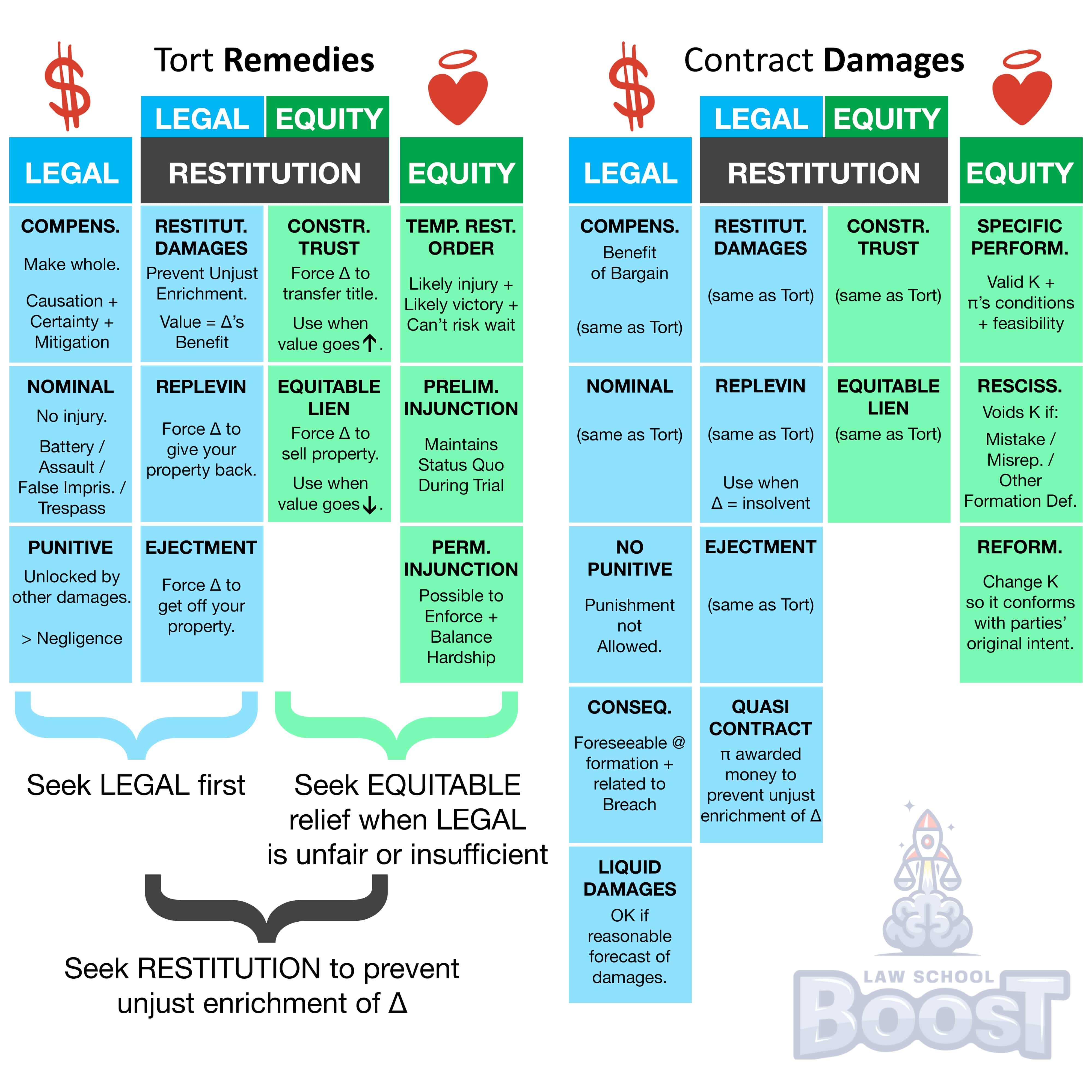🏥
Remedies • Contract - Equitable Remedies
REM#066
Legal Definition
For rescission to be proper, a mutual mistake must go to a material fact. If a mutual mistake involves merely a collateral fact, like quality, desirability, or fitness for a particular purpose, rescission is not proper.
Plain English Explanation
Contracts are sacred, and courts will generally enforce them unless there is good reason not to.
When two people make a contract based on a shared misunderstanding about an important fact, they can cancel (or "rescind") the contract. However, if their shared misunderstanding is about a minor detail, they can't cancel the contract. For example, if both believe they're buying a painting from a famous artist, but it turns out to be a fake, that's a major mistake. But if they both think the painting is in perfect condition and it actually has a small scratch, that's a minor detail.
When two people make a contract based on a shared misunderstanding about an important fact, they can cancel (or "rescind") the contract. However, if their shared misunderstanding is about a minor detail, they can't cancel the contract. For example, if both believe they're buying a painting from a famous artist, but it turns out to be a fake, that's a major mistake. But if they both think the painting is in perfect condition and it actually has a small scratch, that's a minor detail.
Hypothetical
Hypo 1: Bob sells Sam a car, both believing it's a 2020 model. After the sale, they discover it's actually a 2018 model. Result: The contract can be rescinded because the model year is a material fact.
Hypo 2: Bob sells Sam a diamond ring, both believing it's a genuine diamond. Later, they find out it's a cubic zirconia. Result: The contract can be rescinded because the authenticity of the diamond is a material fact.
Hypo 3: Bob rents an apartment to Sam, both thinking it's 1000 sq ft. After moving in, Sam discovers it's only 900 sq ft. Result: The contract can be rescinded because the size of the apartment is a material fact.
Hypo 4: Bob sells Sam a jacket that Sam thinks looks super fashionable. At the time of the sale, they both believe that it is water-resistant. After wearing it in the rain, Sam gets wet. However, the jacket's main purpose was for style, not to be waterproof. Result: The contract cannot be rescinded because the water-resistance is a collateral fact.
Hypo 2: Bob sells Sam a diamond ring, both believing it's a genuine diamond. Later, they find out it's a cubic zirconia. Result: The contract can be rescinded because the authenticity of the diamond is a material fact.
Hypo 3: Bob rents an apartment to Sam, both thinking it's 1000 sq ft. After moving in, Sam discovers it's only 900 sq ft. Result: The contract can be rescinded because the size of the apartment is a material fact.
Hypo 4: Bob sells Sam a jacket that Sam thinks looks super fashionable. At the time of the sale, they both believe that it is water-resistant. After wearing it in the rain, Sam gets wet. However, the jacket's main purpose was for style, not to be waterproof. Result: The contract cannot be rescinded because the water-resistance is a collateral fact.
Visual Aids

Related Concepts
How does election of remedies affect a claim for rescission?
If a contract has a liquidated damages clause, is specific performance still an option?
What are common defenses to specific performance?
What are defenses to rescission?
What are equitable remedies in contract?
What are the defenses to formation?
What happens if a plaintiff is entitled to rescission but has already performed?
What is reformation?
What is rescission?
What is specific performance and when it is applicable?
What is the part performance exception to the Statute of Frauds?
When applying specific performance to a land purchase contract, what happens if a buyer breaches a "time is of the essence" clause with a forfeiture clause?
When applying specific performance to a land purchase contract, what happens if the quantity of land is in dispute?
When assessing reformation, what constitutes sufficient grounds?
When assessing specific performance, how do courts weigh feasibility of enforcement?
When assessing specific performance to acquire a unique piece of property, when is uniqueness tested?
When assessing specific performance, what must the status be of a plaintiff's contractual conditions?
When assessing specific performance, why are money damages sometimes an inadequate legal remedy?
When assessing whether money damages are inadequate for specific performance, why does it matter whether a piece of property is unique and what kind of property is always unique?
When is personal property considered unique enough to trigger specific performance?
Will courts grant rescission for a unilateral mistake?


